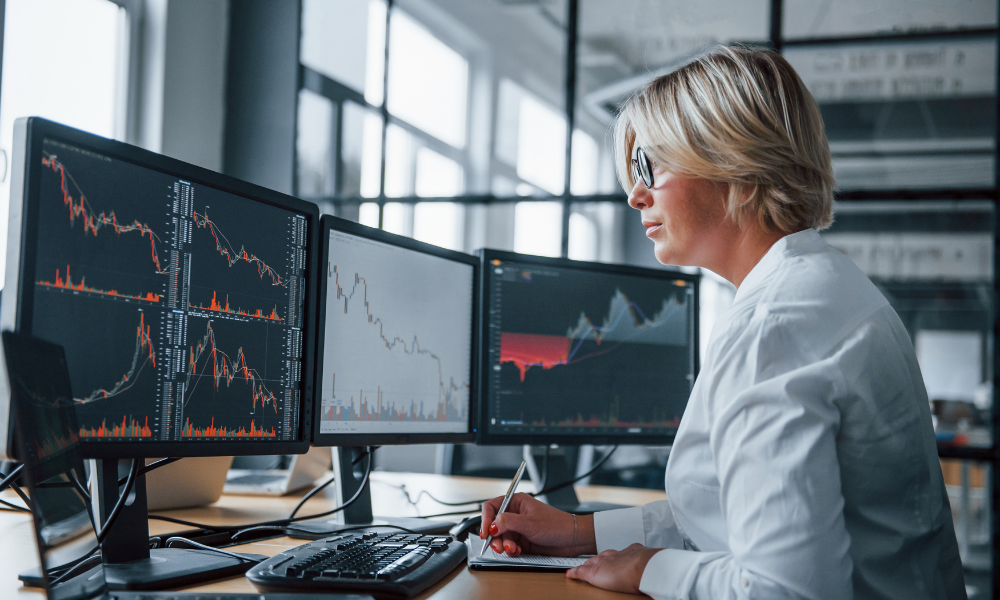Portfolio manager and planner warns against 'yield traps,' stresses importance of conviction

Nearly halfway into 2023, much of the speculation and conversations among investors have continued to centre around the outlook for the economy and markets. But amid the noise around regional banks, the 60-40 portfolio, and commercial real estate woes, companies by and large have been reporting better-than-expected earnings – and that has been coming back to shareholders.
“While investors obsess over the possibility of a recession, whether or not interest rates have peaked, or where the market will go next, companies have been quietly returning capital to shareholders at a record clip,” Dixon Mitchell, an independent, employee-owned investment firm based in BC, said in an April commentary.
Citing data from Bloomberg, the firm noted that aggregate dividends paid by members of the S&P 500 have reached an all-time high. Goldman Sachs investment research also shows 1st-quarter share buyback authorizations have also hit a record.
Investors looking to get guaranteed rewards within their portfolios might be stroking their chins at that information. But even though the idea of getting dividends today might be appealing, it shouldn’t be the end all and be all in investing.
“I don't focus so much on dividends,” says Grant White, portfolio manager and financial planner at Endeavour Wealth Management with iA Private Wealth. “It's not that dividends aren't important … but I think some investors get overly focused on dividends, and they miss the forest for the trees.”
White says that when all is said and done, investors should be focusing their attention on net returns, after taxes. In other words, they should build their portfolios with the goal of getting the rate of return they need to achieve their financial goals.
“Throughout my career, I’ve found some people are so hyper-focused on dividends that they actually make poor investment choices,” he says. “They may look for higher dividends that either aren't sustainable, or maybe aren't even safe. You can get caught in yield traps pretty easily that way.”
While he doesn’t advise dividend-seeking for its own sake, he acknowledges the current environment is an interesting one. Against the backdrop of market volatility, investors have to try to be more patient to realize their return targets. For shareholders of good-quality companies who keep the faith through the storm, dividends can be a good reward.
Many investors would get their dividend exposure from Canadian banks, White notes. The largest Big Six bank by market capitalization, RBC, recently increased its dividend by 0.89%, bringing its current yield to 4.04%. BMO, the oldest of Canada’s big banks, boosted its dividend by 1.92% in February, bringing its yield to 4.54%.
“It’s pretty great when you can get 4% to 4.5% on an asset that’s dropped in value,” he says. “Assuming you can get back to the same historic level of share price accumulation, you can expect to get 6.5% to 7% per year on that bank stock eventually.”
In its April commentary, Dixon Mitchell noted that faced with the right investment options, a company with healthy cash flow would often want to use part of its generated capital to either fund organic growth or boost acquisition activity. But management teams should also be able to recognize when the investment landscape is less attractive and potential projects are not likely to generate enough returns to justify their cost of capital.
“When this is the case, it’s often preferable to return some or all of the excess cash to shareholders, either directly through dividends or by repurchasing and retiring outstanding shares,” it said.
Of course, that pendulum can swing too far. If it seems like a company’s management is fixated on dividends and distributions, rather than reinvesting their free cash in the business, White says it’s time to ask some important questions.
“We know a lot of great companies pay dividends. But if a CEO is telling me they’re not finding enough opportunities to invest in the business, I would ask ‘Why don’t you believe in the business? Why don’t you believe in the opportunities you have?’” he says. “If they don’t have that belief, I would suggest the person in charge isn’t the right one to lead the company, or maybe it isn’t the right business for my money.”



